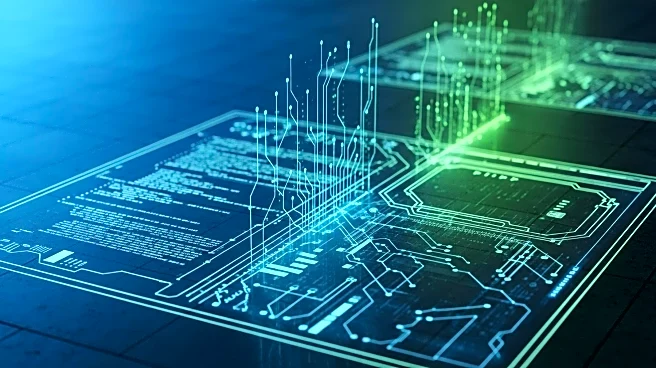What is the story about?
What's Happening?
Hackathons have become a significant platform for innovation, bringing together individuals from diverse backgrounds to solve problems under tight deadlines. These events, often lasting 24 to 48 hours, challenge participants to develop practical solutions using new technologies and frameworks. Notable innovations such as Twitter and GroupMe originated from hackathon sessions, highlighting their role in fostering creativity and collaboration. Hackathons also provide hands-on learning experiences, allowing participants to refine skills such as teamwork, communication, and presentation. The rise of artificial intelligence is reshaping hackathons by enabling faster prototyping and real-time data analysis, although it also introduces challenges related to data privacy and algorithmic bias. Events like JPMorgan Chase's 'Code For Good' invite students to develop technology solutions for non-profit organizations, offering networking opportunities and potential job offers.
Why It's Important?
Hackathons are crucial for driving innovation and providing career opportunities. They serve as incubators for creativity and entrepreneurship, allowing participants to brainstorm, prototype, and pitch ideas under pressure. This mirrors the startup journey, with many successful companies tracing their roots back to hackathon prototypes. Hackathons also play a role in national and global impact, as seen in the Smart India Hackathon, where students tackle real-world problems from government and industry. These events cultivate an entrepreneurial mindset and offer a platform for students and professionals to gain confidence and refine their ideas. With AI enhancing creativity and speed, hackathons are poised to become even more transformative, impacting industries, universities, and society at large.
What's Next?
As hackathons continue to evolve, they are expected to further integrate artificial intelligence to enhance creativity and efficiency. Participants will need to balance AI's capabilities with human creativity and ethical considerations. The success of hackathons in fostering innovation and career opportunities suggests that they will remain a vital platform for turning ideas into reality. Companies and universities may increasingly use hackathons to drive internal innovation and recruit talent. Additionally, the focus on solving real-world problems may lead to more industry-backed and government-supported solutions, expanding the impact of hackathons beyond prototypes.
Beyond the Headlines
Hackathons are not just about coding marathons; they are about collaboration and practical learning. They challenge participants to fail fast, adapt quickly, and continuously improve, providing lessons that extend beyond the event itself. The integration of AI in hackathons adds a new layer of skill development, requiring participants to balance technological power with human responsibility. Hackathons also serve as engines of national and global impact, addressing challenges in various sectors such as traffic management, waste disposal, and healthcare. The entrepreneurial mindset cultivated in hackathons is one of their most enduring contributions, shaping the way ideas become reality.














